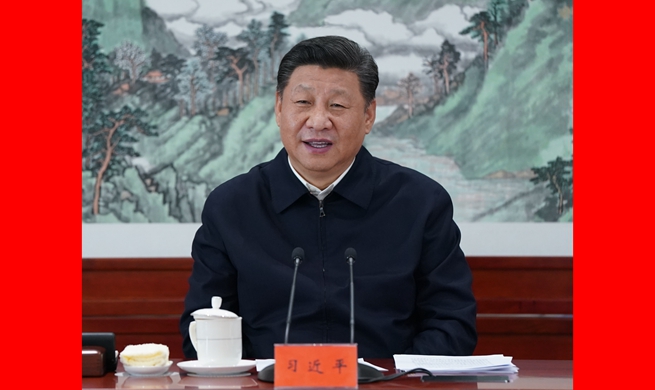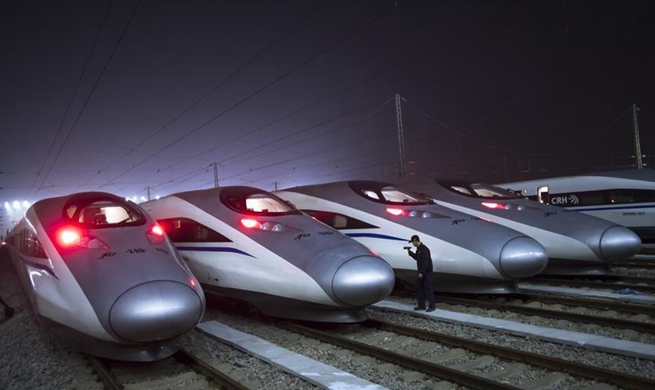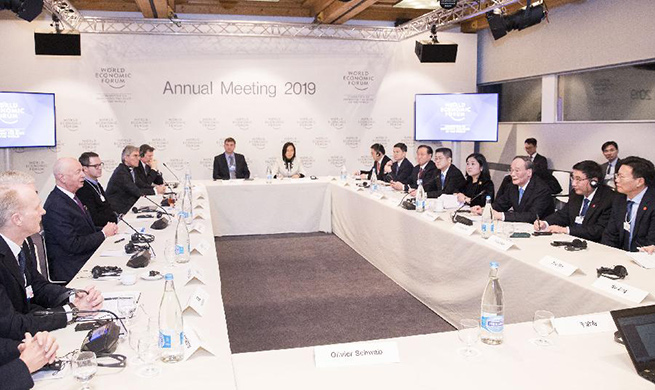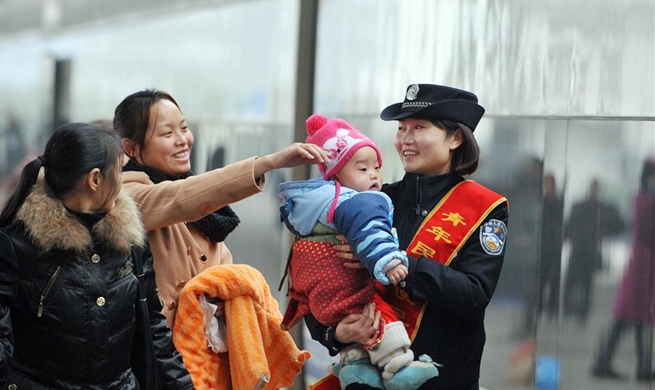DAVOS, Switzerland, Jan. 25 (Xinhua) -- The companies of the world need to step up and help bring economic opportunities to the poor and the needy in fragile countries. If they do not do so, they will reap conflict and destabilization, the head of the World Food Programme (WFP) said on Friday.
In an interview with Xinhua, David Beasley, executive director of the WFP, said there is need to bring infrastructure to small-scale farmers to improve food security.
He spoke during the Jan. 22-25 annual meeting of the World Economic Forum (WEF), which had the theme: "Globalization 4.0: Shaping a Global Architecture in the Age of the Fourth Industrial Revolution."
Beasley said that there is 300 trillion U.S. dollars of wealth available in the world today, "unprecedented fluid wealth beyond any time period in world history," and yet "1.4 million children in the areas of famine alone are at the break of starvation."
"It is a disgrace," said the American head of the WFP.
He said it is not just a matter of donating money to the WFP, which assists 91.4 million people in around 83 countries each year, to deliver food assistance and working with communities to improve nutrition.
Companies need to help bring economic opportunities to the poor and the needy in some of the fragile countries, said Beasley.
"And if you don't, you will pay the price in one way or another with destabilization, conflict and migration," he said.
Beasley noted China's tremendous success in reducing the number of hungry people by 800 million in the past 40 years. Part of that has been done by building infrastructure.
"It is also about engaging the private sector in China to help us be more efficient and more effective," said Beasley.
He said the WFP is partnering with Chinese company Alibaba on different fronts, such as in artificial intelligence and logistical capacity to get products out to remote areas.
"That is so that smallholder farmers can have livelihoods. If you don't address the smallholder farmer in China, China will never prosper. And the Chinese government gets that," said the WFP head.
China has invested in the infrastructure, tools and the training necessary for smallholder farmers to succeed in China.
Turning to China's Belt and Road Initiative, the WFP chief said this is important for smallholder farmers in Africa.
He said China is a WFP partner in supporting smallholder farmers because most of the people in Africa farm this way and more than half of them are women.
"Infrastructure is critical in a variety of different ways. Without market access products will rot in the fields. Forty percent of all harvesting in Africa is lost between the field and the market. With that 40 percent loss we could feed 2 billion people," said Beasley.
"So, access to markets -- road infrastructure -- is critical," he said.













